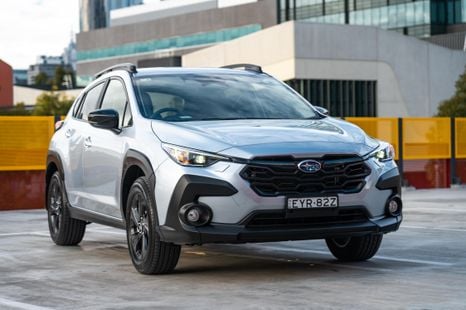

William Stopford
Which new car should you buy for under $30,000?
14 Hours Ago
Another year, another victory for Toyota, with the Nagoya-based automaker claiming the global sales crown over rival Volkswagen.

Journalist


Journalist
Toyota was the world’s most popular automaker for the second year running, increasing its margin over the second-placed Volkswagen Group.
The Toyota, Lexus and Daihatsu brands sold a total of 10,340,336 vehicles last year, an increase of 954,191 or 10.2 per cent from 2020, the first year of the Coronavirus pandemic.
Meanwhile the passenger car and light commercial vehicle divisions of the Volkswagen Group saw sales dip 5.5 per cent to 8,610,600.
We’ve excluded the truck brands Hino (155,212), MAN (151,000), Scania (90,400) and Navistar (29,900) from both groups’ headline figures.

While many other automakers had to drastically cut production due to the global semiconductor shortage, Toyota was able to sail through the first three quarters of the year before it had to implement widespread plant shutdowns.
The Japanese automaker credits stockpiling and its close relationship with suppliers for its ability ride out the early part of the storm.
With 8,912,949 sales across the world, the Toyota brand was up 11.8 per cent from the year before.
Daihatsu was up 4.5 per cent 725,179, buoyed 50.2 per cent increase in sales outside of Japan — primarily Indonesia. The small car specialist still sells most of its vehicles in its homeland, though, with its 527,739 sales in Japan accounting for almost 73 per cent of its total.
Things didn’t fare so well at Lexus, where its 702,208 sales were down 2.3 per cent from 2020.
Breaking down the company’s figures by region, Toyota saw gains everywhere except in Japan where it was down 1.9 per cent to 1,476,136.
A jump of 10.2 per cent to 2,332,262 saw Toyota overtake GM and become the largest automaker for the first time in the US market.
Collectively Toyota’s brands sold a total of 2,482,236 hybrid cars (up 27.0 per cent), 111,882 plug-in hybrids (up 131 per cent), 14,404 pure EVs (up 331 per cent), 7,482 mild hybrids (none were sold in 2020), and 5,918 fuel cell vehicles (up 234 per cent).

For the second year in a row Volkswagen Group finished with the silver medal.
Volkswagen tumbled 8.1 per cent to 4,896,900, Audi slipped by a marginal 0.7 per cent to 1,680,500, Skoda suffered most heading down 12.6 per cent to 878,200, and Volkswagen Commercial Vehicles was down 3.2 per cent to 359,500.
Collectively Lamborghini, Bentley and Bugatti were off 4.5 per cent to 23,100.
On a brighter note Seat rose 10.3 per cent to 470,500, while the ever-profitable Porsche jumped 10.9 per cent to 301,900.
Looking at geographies, falls in the key Western European (down 2.7 per cent to 2,860,400) and Chinese (off 14.1 per cent to 3,304,800) markets were slightly offset by a 15.6 per cent gain in North America (908,400).
The German automaker’s multi-billion dollar push into the EV market is slowly turning into solid sales figures.
A total of 452,100 EVs were sold by the company’s various car marques in 2021, an increase of around 95 per cent over the previous year. Electric cars now account for 9.2 per cent of Volkswagen Group sales.
With heavy government incentives and stringent CO2 targets, the bulk of the company’s EVs were sold in Europe (310,400). A further 92,700 were sold in China, and 37,200 in the USA.
We’ll take a deeper dive into both companies figures when we do our annual global sales wrap, which should be available some time in February.
Derek Fung would love to tell you about his multiple degrees, but he's too busy writing up some news right now. In his spare time Derek loves chasing automotive rabbits down the hole. Based in New York, New York, Derek loves to travel and is very much a window not an aisle person.


William Stopford
14 Hours Ago


Josh Nevett
14 Hours Ago


Max Davies
14 Hours Ago


Shane O'Donoghue
22 Hours Ago


Derek Fung
1 Day Ago


James Wong
1 Day Ago